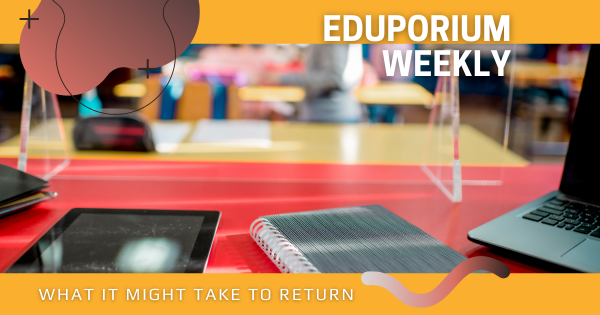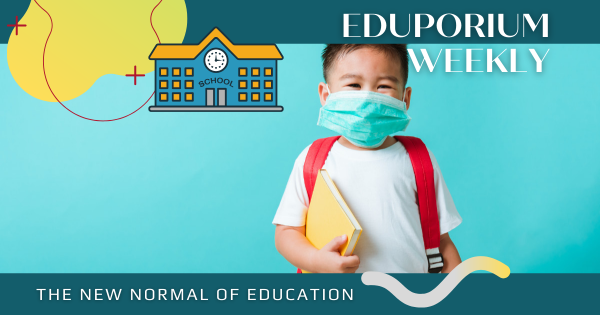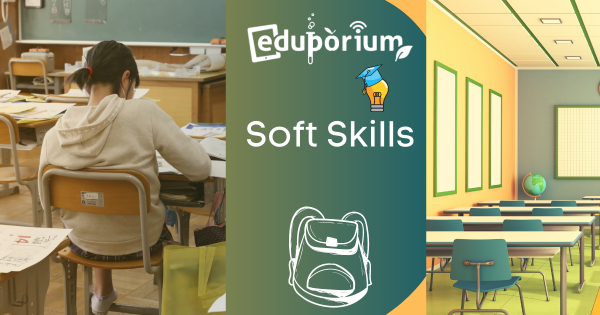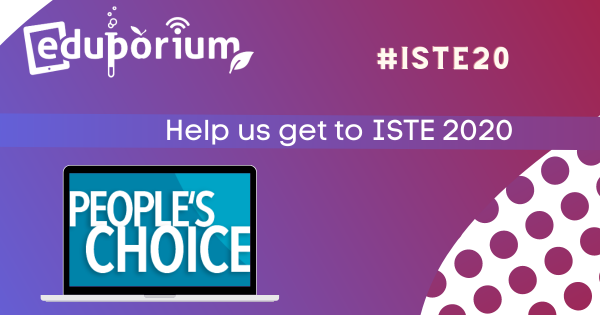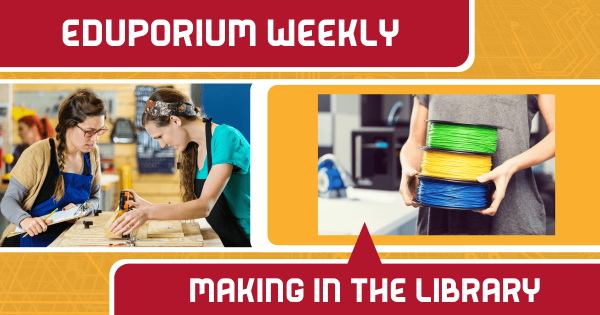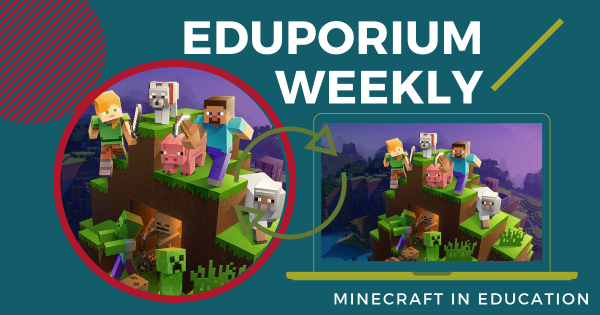Some schools will not be reopening on the first day of classes but, in other districts, it’s yet to be decided what the approach will involve. Throw in this political pressure and you have a pretty volatile, potentially dangerous, and likely fluid situation for the rest of this summer and into the first few weeks of the year as everyone
SEL
Social-emotional learning has evolved so much in just the last few years alone. Today, it's an essential element of a true 21st century learning experience. Even before the pandemic upended learning and transformed the ways in which educators interacted with their students, incorporating SEL was still very much a focal point. In our experiences, this can be done in many different ways. While SEL-inspired curricula can be effective, we sincerely believe in the power of touch. This is what activates social-emotional experiences and bolsters a student's social-emotional foundation. And, fortunately, there are so many opportunities for this in STEAM education. From programming a robot to working together on a design project, students can get the best of both worlds. All it takes is a little bit of strategy in combining these two key areas of 21st century education.
SEL in the classroom or other educational environments benefits students in a number of ways. Whether educators prefer to subtly introduce students to relevant SEL skills, concepts, and competencies or actively work to ensure students collaborate and communicate effectively, it can truly enhance many different types of lessons. Factor in all the new types of daily stressors students are facing as a result of distance learning, traumas, or any other personal experiences and SEL can play a huge role in ensuring they're able to continue learning. With stronger social-emotional health, students also often tend to perform better academically. We believe they can develop their SEL skills in all learning environments. This includes in the classroom, after school, on the playground, and in extracurricular participation. Here, you'll find our thoughts on why this is important and how STEM education can help.
-
Eduporium Weekly | Reopening Schools In The Fall
State officials and education leaders are starting to announce their plans for reopening schools in the fall. While we know that students and teachers returning to the physical classroom is ideal, there are plenty of opponents to this course of action who think it will be unsafe. There are so many things for school leaders to consider as plans remain -
Coronavirus And Education: Soft Skills And Their Importance
In what’s rapidly becoming an unprecedented time for those in the education world (as well as other industries that notably include technology and professional sports), the dangerously quick spread of news is something all of us—educators included—have to be weary of and soft skills can play a role for teachers, administrators, and students. -
Help Us Bring SEL And MakerEd To ISTE 2020
The full title of this presentation is “Combining SEL, STEAM, and Maker Ed tools to increase student learning capacity.” If selected, we’ll be discussing the commonalities that STEAM and SEL efforts share as well as how some MakerEd tools help teachers create these experiences. Specifically, maker tools help teachers connect the heads, hearts, and hands of students. -
Eduporium Weekly | Makerspace in the Library...Or Wherever
While library makerspaces are a great way to advance and promote 21st century learning, we’re not exactly advocating for overthrowing the library in your school completely. Just want to make that perfectly clear. In fact, school libraries and library makerspaces have been known to complement each other, making one reason they’re so popular. -
Eduporium Weekly | Minecraft as a Legitimate STEM Tool
We all know that kids today love technology. Whether it’s tablets, smartphones, laptops, or whatever else they play with, once they hit nine or 10 years old, they seem to be glued to some sort of device. A lot of these children are sitting in front of computers and bettering themselves at the same time. That’s right—they’re playing Minecraft.




